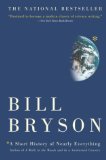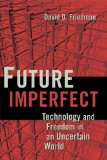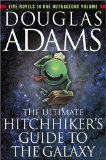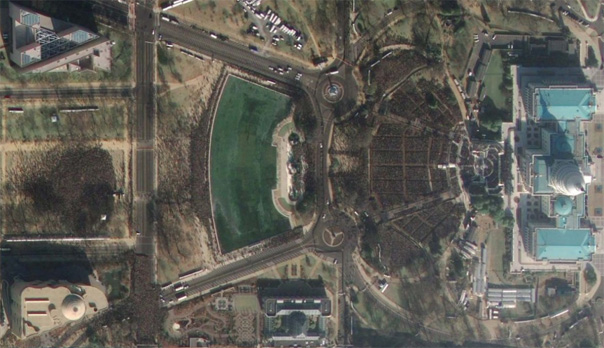A common question I get nowadays is “What should I invest in?” My best answer to that question is probably not what you’d expect.
My default financial response to this query over the past two years has been to go long on commodities, particularly gold, silver and energy, short the stock market, particularly financials and builders, and stay out of bonds and real estate.
Despite my default advice being proven correct as the months have gone by, getting the timing right on entering and exiting these positions has been incredibly difficult, if not downright impossible. Buy and hold has brought both pleasure and pain for commodity-bulls. Equity shorts have had to endure both the unpredictability of government intervention and market reactions to said intervention. That “timing has been paramount” is just another way of saying that luck has been the determining factor in investing success. And success has meant not so much whether you’ve made a lot of money, but more in how little money you’ve lost. I take solace in treading water in an environment where a 10% or greater annual loss in this market is a job well done.
As far as financial investment advice going forward, I maintain that gold, silver and energy, and commodities generally are going to be big winners in the next few years as investors swap paper assets for real assets. This thesis is built upon the reality that debt financing by governments is exploding, which will ultimately mean higher yields on bonds and running the printing presses on the shortest-term debt around, the Federal Reserve Note — a.k.a. the dollar.
The above advice is my best guess. Use it at your own peril.
Setting that question aside, there are irrefutably good investments that you can make in bad economic times. They require setting aside more of your time than your money. Since time is the most scarce resource you can spend (And your happiness one of the most precious assets you can buy), these investments are arguably exponentially more important than your physical wealth, anyway.
Good Investments
Family
Your family is a wealth of advice, laughter, entertainment, and support (Sure they can be a PITA, but focus on the big picture!). Parents love you even when you screw up. Siblings understand you in ways others can’t. And who doesn’t have warm memories of holidays spent playing with cousins or aunts and uncles? There’s no good reason family moments should be isolated to major Judeo-Christian holidays or the occasional birthday.
Keep in regular touch with your parents. They brought you into this world: you owe them the occasional phone call. Encourage them in their endeavors and reap the benefit of mutual support.
Call up extended family and make potluck dinner plans. Play games with nephews and nieces. Chastise balding uncles. Play card games. Eat food.
Simple pleasures spent with family are hard to beat. It doesn’t take much money to share a laugh and make a memory with your family, even if at first it seems like setting something up takes some element of work. The time-investment pays off.
If you are young and married, investing in family presents a huge opportunity for wealth: you can have children. Having a kid (or two or three) is perhaps the most fundamental, biologically-innate way to build wealth around. A kid is an investment in your future. Though I don’t have any kids to speak of, I’ve got a nephew and enough intuition to see a good investment when I see one. Of course, having a child is one massive investment of time (And money), but it is one that enriches parents for a lifetime. My powers of observation also note that people all around the world, at all different levels of financial wealth, are able to support children, so even in bad economic times, you can still make this pivotal investment.
Friends
Similar to family, friends are bastions of wealth that merely take investments of time. These days, with social applications like Facebook, it’s even easier to stay in touch and make plans with friends — even those you haven’t seen in awhile.
As for making new friends, check out meetup.com. I’m just getting into this site myself (I’m a bit behind the curve on this one!), but Meetup is a way to use cyberspace to meet people in real space. What more, you can find folks with similar interests to yours, attend a gathering of said individuals and potentially find a kindred spirit who shares other interests.
Pet(s)
Get a cat or dog. Pets are fantastic because they typically require only a marginal investment of time and money while providing an immense amount of love, entertainment, perspective (ever watch a cat or dog lounge in the sun?) and stress-reduction. Pets can provide exercise (dog-walking) and even boost self-esteem by reminding you that this cute furry being depends on your caring for them for their survival.
Cats (my preference though I like dogs, too) are likely the more cost-efficient pet from a time and money perspective. Having a cat requires:
- Maintaining a litter box. This is the worst part of cat-ownership. At the same time, cats instinctively know how to use a litter box and can even be trained to use the toilet. Alternatively, if you can let your cat outside, they’ll prefer pooping in nature, which will drastically reduce your litterbox duties (pun very much intended).
- Feeding regularly. Usually you can do this once a day and be done with it as cats regulate their own eating
- Cleaning up fur/shedding.
- Cat-proofing your world. This mainly means stopping your cat from destroying your furniture.
As far as breed, I happen to be big siamese/tonkinese fan as they tend to be personable, people-friendly, smarter and sociable. In other words, they seem to exhibit some of the more desirable qualities typically associated with dogs. I found Zeke (pictured above, in the youtube video) via petfinder.com. He cost me a hundred bucks to “rescue.” That was about seven years ago. I’m guessing he costs about a dollar a day to take care of, and that price is well worth it for the enjoyment he brings. Just as an example, when I haven’t seen Zeke in awhile, he usually jumps up from the ground for me to catch him in my arms at which time he licks my nose with his raspy tongue (Exfoliates the skin?).
I know less about having a dog, but caring for a dog takes a good bit more work as they must be walked and taken out to “do their business.” They demand a bit more attention/companionship, too, which is why getting a dog should never be taken lightly. Dogs also provide some unique benefits that accompany the additional cost of ownership. I don’t go into dogs here because I can’t speak from experience.
Suffice to say that having a pet can be an incredibly rewarding investment.
Health
You can invest in your health right now by taking a walk outside. This will not only get your body moving but it will expose your skin to the sun, which will boost your Vitamin D production. Mind, taking a walk and getting some sunlight is only marginally going to improve your health, but health is maximized by simple things.
If you are ready to step it up, getting a solid workout in is as simple as setting aside 30 minutes and doing some bodyweight exercises. For example, maybe you should try Craig Ballantyne’s Bodyweight 300 Cardio Circuit, which requires no more equipment than a wall, floor and watch.
Even simpler, run some sprints up a hill outside. Or just do some push-ups or lunges during commercials while you watch television. Add in some social interaction for some investment-synergies by playing Ultimate Frisbee, kickball or basketball with friends and family. Alternatively, go toss a ball with your kid or walk your dog. Unlearn the notion that exercise is accomplished in a gym, for a set period of time, at certain times of the day. De-complicate your health.
As for the other key way to invest in your health, eat real food that you cook in your kitchen. It’s cheaper than going to a restaurant, better for you (you know what you put in it), reaps creative benefits and if you’re up for entertaining, you can synergize again by inviting over friends and family.
If you’re not hungry, try fasting for 24 – 30 hours. There are health benefits to fasting (More on this here). If you’ve never fasted before, I recommend it for nothing more than the experience of purposefully breaking your eating habits.
Books and Knowledge
Reading a book is a cheap way to live vicariously, acquire knowledge on the cheap and amass immense quantities of accretive, intangible wealth. Gleaning just one good idea, paradigm or perspective from a book makes the hours it takes to find it worthwhile. Why is this? Because useful ideas are transferable and can be combined with other ideas to create even more useful ideas, theories, paradigms, etc. Ideas (and knowledge) compound your wealth in ways you can’t predict.
For just two books that may bring you some comfort during turbulent times, I highly recommend:
If nothing else reading allows you to reap the rewards of someone else’s hard work and research — even if you’re just reading a blog.
Summary
The above suggestions are just a few ways to make valuable, high-return investments in uncertain economic times. At the risk of presenting advice that may be obvious, I focus on the elements of life I can control, which happen to be the elements of life that I’d deem most fulfilling. I have little control over the economic or political environment. I can scarcely predict what will happen today, much less can I predict tomorrow or the coming months and years. I encounter immense uncertainty, a stochasticity of life, that I can either lament or embrace. By investing in wealth that is more intangible than financial, I am better able to manage the uncertainty of these troubling economic times, and no matter what happens to the stock market or our economy, I’m assured to live a rich, fulfilling life.







